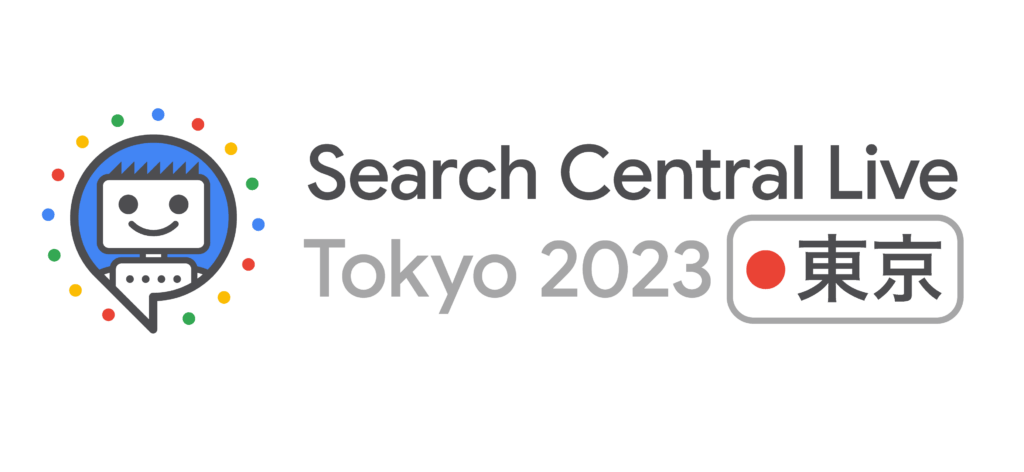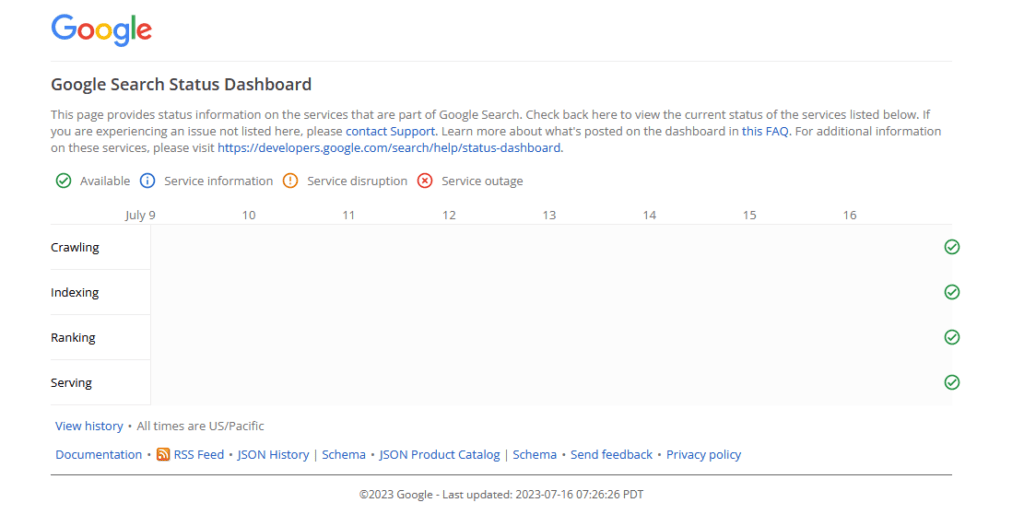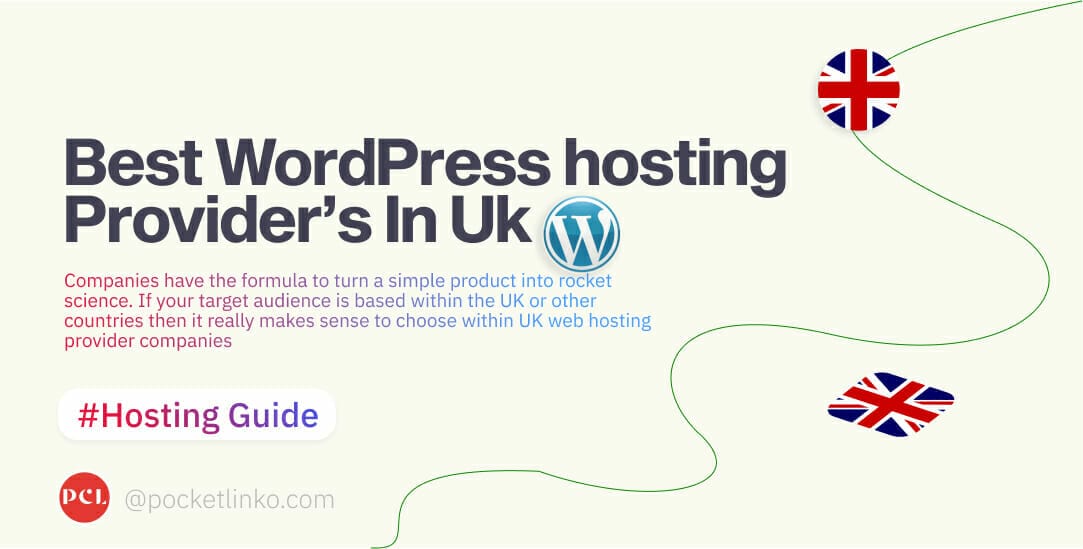In today’s fast-changing digital world, the blending of artificial intelligence (AI) with search engines like Google is a popular subject. Search engines aim to give users the best and most useful information,
So it’s important for content creators, marketers, and SEO experts to understand how Google handles AI-generated content and determines its ranking and what is google AI content update (which is the primary focus of our SEO Sunday feature article. This guide will provide an in-depth look into AI-driven content and uncover how Google utilizes AI to improve search results.
#SearchCentralLive Tokyo is about to begin and we couldn't be more excited! So! Many! People! 😍 pic.twitter.com/HSOS7bFZJ3
— Google Search Central (@googlesearchc) June 16, 2023
Get ready to take a deep dive into Google’s AI algorithm and learn how to make the most of AI technology to create high-quality content that resonates with both search engines and your target audience. Let’s embark on this enlightening exploration together and unlock the power of AI content optimization!
Keep an eye out for the upcoming Sunday SEO and AI sections where we will uncover the secrets of Google’s algorithm, delve into the guidelines for AI content, share tips on optimizing your AI-generated content effectively, and take a glimpse into what lies ahead for AI-powered content in our ever-changing digital world. Prepare to boost your online presence and engage your audience with compelling AI-driven content that dominates search engine rankings.
What Google Search Central Live Tokyo 2023 Reveals Insights on AI Generated Content and Google’s Approach”

At the Google Search Central Live Tokyo 2023 event, Gary Illyes (Google CB Profile) from Google and other experts addressed numerous inquiries regarding AI. They provided valuable information on how Google approaches and advises on AI-generated content.
Kenichi Suzuki, a renowned Japanese search marketing specialist (Twitter profile), presented at the Search Central Tokyo 2023 conference. He later published a blog post in Japanese summarizing the key takeaways from this event:
During the event, some information was shared that may already be familiar and readily available through documentation. For instance, Google emphasized that whether content is AI-generated or not does not make a difference to them.
When it comes to both AI-generated content and translated content, what holds paramount importance for Google is the quality of the content itself and freshness. This means that providing high-quality and valuable information remains crucial regardless of how it was created or translated.
Exploring Google’s Approach to AI-Generated Content and E-A-T
When it comes to how Google handles AI-generated content, there are still several unanswered questions that may be on your mind:
In this blog post, we will discuss compelling use cases for Artificial Intelligence in marketing. Specifically, we’ll delve into how Google treats AI-generated content and how it handles AI content with respect to E-A-T (Expertise, Authoritativeness, Trustworthiness). These topics are of utmost importance when it comes to understanding the role of AI in digital marketing. Let’s explore these areas further and gain valuable insights together!
If you’re eager to explore and understand the current relationship between Google and AI, this is the blog post you’ve been waiting for! Without further ado, let’s dive right into it and uncover more details about these topics together.
How Google Treats AI Generated Content?
If you create content, a reminder: create your content for people, not robots, for success with Google Search. That's long been our advice. For a refresher, see our guidance about creating helpful, reliable, people-first content: https://t.co/NaRQqb1SQx
— Google SearchLiaison (@searchliaison) June 16, 2023
Google has a specific approach when it comes to handling content that is generated by AI.
When evaluating AI-generated content, Google considers various factors. They aim to prioritize providing users with valuable and relevant information while ensuring the quality of search results. It’s important for AI-generated content to meet certain criteria in order for it to be well-regarded by Google. Factors such as originality, usefulness, and relevance are taken into account during evaluation.
In some cases where there may be concerns about the authenticity or credibility of the AI-generated content, Google might display warnings or disqualify its inclusion from appearing in search results altogether. Ultimately, Google focuses on enhancing user experience by promoting high-quality human-created content that best serves the needs of its users.
Is Labeling AI Generated Content Important?
It may not be widely known, but Google does not currently distinguish or label AI-generated content specifically. This clarification came from a response by a Googler, possibly Gary Illyes. While Google values transparency and clear labeling of various types of content, such as ads or sponsored posts, at this time they do not have specific labels to indicate whether the content was generated by AI.
However, it’s important to note that Google continuously updates its algorithms and systems based on user feedback and evolving needs. So future changes regarding how AI-generated content is treated by Google cannot be ruled out. For now, it remains essential for users to critically evaluate the sources and nature of the information they come across online since there is no distinct designation for identifying AI-generated material within search results provided directly by Google itself.
The Importance of Labeling AI Generated Content for Publishers
Labeling AI generated content is crucial for publishers to establish transparency and maintain trust with their audience. By clearly indicating when content has been generated by AI, publishers can provide readers with essential context about the source of the material they are consuming.
According to Google, publishers are not required to label their text content as AI generated. The responsibility of explicitly labeling AI-generated content is left up to the judgment of the publishers themselves in terms of providing a better user experience.
Google evaluates the nature of the content and does not consider it necessary for explicit labeling. However, they caution against publishing AI content without human editorial review and recommend applying the same approach to translated content before publication – ensuring that a human reviewer assesses its quality.
In summary, while social media companies are encouraged by EU guidelines to voluntarily label AI generated text for combating fake news, Google does not require such labels but suggests considering user experience when making this decision. They emphasize incorporating human editorial reviews for both original and translated contents prior to publishing them.
Important: He also wrote that Google cautioned against publishing AI content as-is without having a human editor review it before publishing. They also recommended to take the same approach with translated content, that a human should review before publishing as well.
According to Kenichi Suzuki, Google does not consider it necessary to explicitly label AI content. They leave it up to publishers to decide whether such labeling would enhance the user experience or not. It implies that Google provides flexibility in this aspect and allows publishers to make their own judgment calls regarding labeling AI-generated content.
My Advice: Labeling AI-generated content is important for transparency, trust, and informed decision-making. It helps users understand the nature of the content and distinguish between human-authored or AI-curated material. Labels also assist search engines in appropriately categorizing and ranking this type of generated content to provide relevant results. Overall, labeling creates clarity about its origin while empowering individuals to differentiate between human-created and machine-produced works effectively.
The Priority of Natural Content in Search Rankings

Google emphasizes that their algorithms and ranking signals are designed to prioritize natural content created by humans. This means that in search rankings, content generated by AI systems typically ranks lower compared to human-created material.
The intention behind this approach is to provide users with the most valuable and relevant information possible. Human-authored content tends to exhibit a higher level of expertise, authenticity, and trustworthiness according to Google’s evaluation criteria.
While there may be valid applications for AI-generated content, publishers should understand the significance of including natural human-created material alongside or instead of completely relying on automated outputs. Delivering high-quality original text from real people rather than solely depending on AI algorithms can greatly enhance visibility in search engine result pages (SERPs).
The English translation of the original Japanese statement is:
“ML-based algorithms and signals are learning from content written by humans for humans. Therefore, they prioritize understanding and displaying natural content at the top.”
This statement highlights that machine learning algorithms employed by Google are trained using human-created content intended for human consumption. As a result, these algorithms prioritize comprehending and presenting natural (human-authored) content prominently in search rankings.
Lesson: The Reasons Behind Google Search Allowing AI Content

LaMDA is a powerful language model developed by Google that can generate natural, logical, and coherent responses to various conversational queries using information from the web and other sources.
Despite the remarkable advancements in AI made by Google, critics have expressed social, ethical, and legal concerns regarding large language models like LaMDA. These concerns include potential risks associated with generating harmful content such as fake news or hate speech. There are also worries about these models potentially overshadowing human intelligence, creativity, and autonomy in certain contexts.
Addressing these concerns remains important for ensuring responsible use of AI technology while maximizing its positive impact on society. Google allows AI content in search results as it recognizes the value and benefits it brings. Banning AI-generated content would disregard its potential for efficient data analysis and unique insights.
Certain types of information can be effectively produced by algorithms without compromising accuracy, such as data-intensive reports or real-time updates. Prohibiting all forms of AI-generated content limits innovation and hinders progress. Google embraces diverse sources alongside human-authored works to provide an inclusive platform for users.
While there are concerns about large language models like GPT-3 generating biased or inaccurate text without cultural context, Google continues to refine their approaches to ensure safe, trustworthy, and beneficial AI-generated content that complies with high-quality standards.
How does Google manage AI-generated content and evaluate expertise, authoritativeness, and trustworthiness (E-A-T) factors?
Let’s explore how Google handles the use of artificial intelligence in creating content and determines its credibility.
When it comes to AI-generated content, Google has specific guidelines in place. These guidelines ensure that websites do not manipulate or deceive users with low-quality or misleading information generated by AI systems.
Google evaluates the E-A-T factors to determine the quality and reliability of online content. Expertise refers to the knowledge, skillset, credentials, or experience possessed by individuals producing a piece of digital material. Authoritativeness measures whether an individual is considered a trusted source within their respective field. Trustworthiness focuses on maintaining honesty and transparency while providing accurate information without any hidden agenda.
To assess these factors accurately when it comes to AI-created materials:
The Google representative mentioned that internal conversations are currently taking place regarding this matter, and a clear policy has not yet been established. They have expressed their intention to announce a policy once they have reached a decision or conclusion on the subject.
Policies related to artificial intelligence (AI) are continuously evolving
As technology advances, organizations such as Google recognize the need to adapt and update their policies accordingly. This is because AI presents various challenges and considerations that require careful examination.
Policy: We are currently experiencing a transitional period due to the increasing availability of AI and concerns regarding its lack of trustworthiness. Many mainstream media companies initially embraced AI-generated content, but they have since taken a step back to reevaluate their approach. This pause was prompted by the realization that AI systems like ChatGPT and Bard were not explicitly trained for content creation purposes.
In light of this, it’s understandable that Google advises publishers to maintain focus on ensuring the quality of their content. With ongoing discussions surrounding policies on managing AI-generated material, it is crucial for publishers to remain vigilant in monitoring and maintaining high-quality standards.
By prioritizing excellence in information accuracy, transparency, and reliability while utilizing effective human oversight strategies when deploying automated technologies like AI generators—publishers can navigate through this transition effectively.
Overall awareness about developing responsible practices within an ever-changing technological landscape demonstrates a commitment toward ensuring positive outcomes through effective policymaking.
The AI Content Conundrum: How to Detect and Avoid Penalties from Google
As AI-generated content becomes more prevalent, concerns arise regarding Google’s ability to identify and penalize such content that may violate guidelines. Content creators, marketers, and SEO experts all strive to provide valuable information to users while avoiding penalties from Google.
It is crucial for them to understand how Google handles AI-generated content in order to maintain a strong online presence. In this article, we will explore the challenges surrounding AI content and discuss strategies for detecting and avoiding penalties imposed by Google. By doing so, you can ensure that your content strategy aligns with the guidelines set forth by this prominent search engine company.
Will Google Penalize AI Content?
According to Google’s policy on automatically generated content, they have always been against fraudulent and low-quality content that does not provide any benefit to readers.
Google has the ability to distinguish between high-quality and poor-quality content. However, it is important to note that AI-generated content can vary greatly depending on the capabilities of the specific AI writer used and the subject matter given.
So, when considering whether Google will penalize AI-generated content, we need to take a two-pronged approach:
In essence—an individual performance evaluation happens case-by-case basis rather than blanket action towards all forms of machine-created output.
can google detect ai-generated content?
Search engines like Google face significant challenges in detecting AI-generated content. While it’s impossible to provide an exhaustive list of all the techniques employed by Google, the company has made substantial progress in this area. To identify and penalize content that goes against its guidelines, Google utilizes a combination of automated algorithms, machine learning models, and manual reviews.
One key method employed by Google involves analyzing patterns and signals within the content itself. Certain indicators can raise suspicions about AI-generated content during the detection process. These include repetitive sentence structures, unnatural language flow, or inconsistent tone – traits often associated with such types of generated text. Through training their algorithms accordingly for pattern recognition purposes over time helps distinguish between human-authored versus AI-produced works.
Moreover, Google continuously enhances its ability to detect AI-generated content through sophisticated machine learning models. By training these models on vast datasets containing both legitimate examples and instances of AI-created texts themselves contribute towards strengthening identification accuracy when encountering suspicious linguistic anomalies.
Human evaluators play a crucial role as well within this detection framework; they assist via manual reviews based on specific guidelines outlined by Google itself.They evaluate aspects such as quality and authenticity while providing feedback which aids algorithmic improvements refining future detections methods further.
It’s crucial to understand that violating its policies concerning automatically generated (which includes using artificial intelligence) content. According to Google’s webmaster guidelines, the company strongly opposes such practices. Websites that employ AI-generated content tactics run the risk of penalties including lower search rankings or even complete removal from Google’s search index.
How much ai content is acceptable by google?
Determining the acceptable level of AI-generated content for Google is a complex task that involves multiple factors. According to Google’s guidelines, it is essential to provide unique, valuable, and user-oriented content. While using AI to generate content isn’t prohibited outright, its quality and value in serving users become crucial considerations.
Google primarily focuses on preventing any negative impact on user experience or deceptive practices involving AI-generated content. Websites that heavily rely on such automated output without adding substantial value through human input may face penalties.
To identify manipulative or misleading instances of AI-generated content, Google algorithms and evaluators assess various aspects. These include the relevance of the generated text, its originality (uniqueness), coherence (logical flow), overall usefulness provided to users by said material.
It should be noted though that there are no specific limits or percentages outlined by Google as an acceptable threshold for generated-by-AI materials.The emphasis lies rather with delivering high-quality substance universally beneficial regardless of whether it originated from human authors or artificial intelligence systems.
In conclusion ensuring adherence towards generating meaningful information aligned with search engine company’s criteria involves finding a balance between incorporating machine assistance while also valuing entirely manually crafted contributions.This approach ensures reliable,content-rich experiences shaping authentic connections with readers whilst satisfying their informational requirements
The TakeWay

Stay informed with the Google Search Status Dashboard, a valuable resource that provides real-time updates on crawling, indexing, ranking, and serving issues that can impact website owners.
The key takeaway regarding how Google treats AI-generated content is that AI should be seen as a tool, not a magical solution. It offers opportunities to enhance the process of content creation and improve efficiency and effectiveness.
However, it’s crucial to recognize that AI has its limitations—it only brings partial novelty or innovation.
Rather than relying solely on AI, it is best to view it as a valuable partner in the content production journey. By combining human creativity, expertise, and critical thinking with the capabilities of AI technology—users can harness its potential for better outcomes in creating engaging and relevant content.
Google acknowledges this perspective by emphasizing the importance of maintaining high-quality standards while utilizing automated tools like AI throughout the content creation workflow. When used effectively alongside human input and oversight—from idea generation to final publication—the partnership between humans and machines can unlock new possibilities without compromising quality or user satisfaction.








